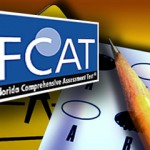Union Worried Testing Could Cause Public To Turn On Common Standards

NEA Public Relations/flickr
Thousands of NEA delegates are meeting in Atlanta, led by national union president Dennis Van Roekel.
About 10,000 educators from around the country are in Atlanta this week for the National Education Association’s annual meeting.
The group will debate issues from school safety to immigration reform as the NEA develops its legislative priorities for the coming year.
Florida Education Association President Andy Ford says Common Core State Standards and assessments will be heavily discussed.
“They’re great standards. They’re higher level standards. They’re common sense,” Ford said. “They allow teachers and students to dive deep into the subject matter as opposed to covering a variety of issues very, very thinly.”
But he’d like more time for students and teachers to make the transition.
“Teachers are going to have to have time to retool absolutely everything they’ve been doing because these standards are so much better,” Ford said, “but they’re higher level and they require different ways of teaching.”
Ford thinks an over reliance on testing may become Common Core’s downfall. It’s a concern he’s repeatedly talked about as the Florida Department of Education works to get teachers ready for full implementation by the 2014-15 school year.
He says third graders can expect to spend nine hours on one test (the group designing the test says it will take eight hours), and high schoolers will take even longer.
“That’s just absolutely absurd,” Ford said. “People are going to have bad feelings about Common Core.”
Just like the Florida Comprehensive Assessment Test, critics say teachers will wind up doing little more than teaching students what to do on the new assessments.
“We put so much pressure on the test. I mean the test is used for student promotion; it’s used for school grades; it’s now used for teacher evaluations,” Ford said. “It will be used starting (in the) 2014-15 school year for teacher compensation. Putting all that pressure on the results of one test doesn’t make any sense.”
As much as he supports Common Core, Ford says the state should be wary of creating a system that’s worse, not better.
“That’s why I’m saying that we need time to rethink what we’re doing and take a look at some common sense approaches to assessment,” Ford said, “so that we don’t ruin the opportunity here with these better standards.”

